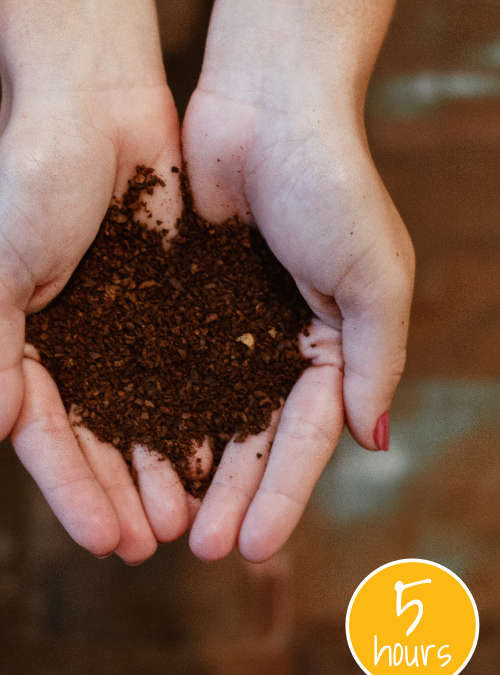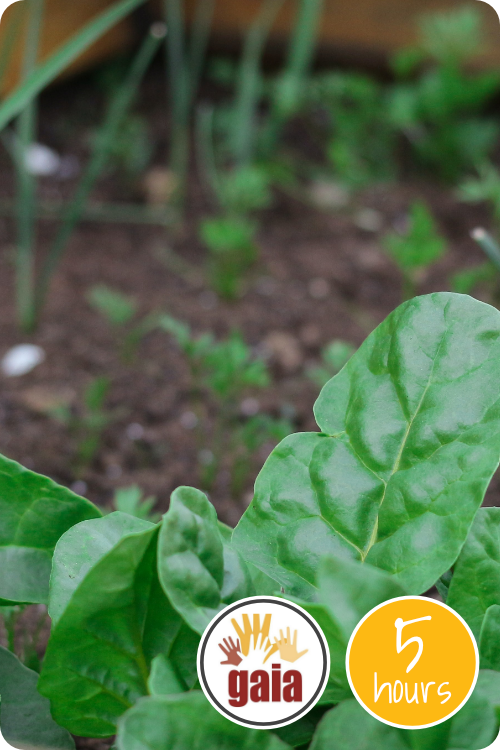
Photo credit: Gabi Miranda on Unsplash
Your mission
Keep your compostable waste out of the trash and build healthy soil.
Time Commitment: 5 Hours
Range of Impact: Home, School, Community
Why this Action is impactful
By composting food waste (and recycling paper, metal, and glass), we’re putting the spotlight on unrecyclable, non-compostable plastics. This makes it clear to governments and companies processing the waste that plastic is problematic. Plus, you’re quadrupling your impact by building healthy soil locally, helping sequester carbon, and preventing methane generation in landfills. What’s not to love?
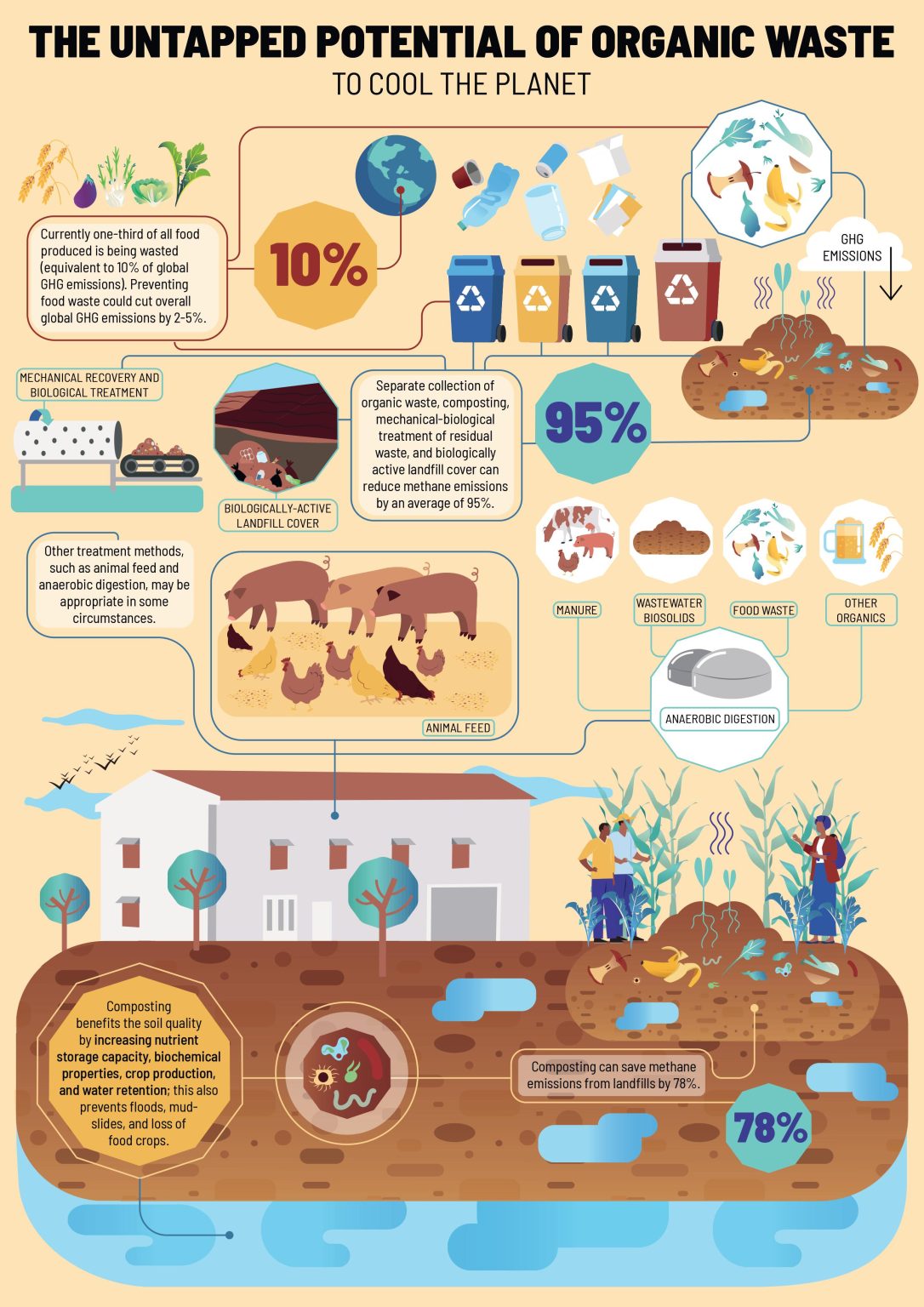
Source: Zero Waste to Zero Emissions, How Zero Waste is a Climate Game Changer, published in 2022 by Global Alliance for Incinerator Alternatives. Learn more about the benefits of composting in the full report.
What to know before getting started
Composting is a fascinating, satisfying way to contribute to the solution to plastic pollution and climate change all at once. There are many strategies you can take. Here are some of the most common ones:
- Find a local composting drop-off at an urban farm or community garden.
- Sign up for a composting pick up organized by your city, or a local group, like BKrot in NYC.
- Build a compost pile at home if you’ve got space and a garden to support, using these 5 steps.
- Build a worm-bin. (This option is good for small spaces without garden access – you can use the dirt for your house plants, window planter boxes for fresh herbs, or give it to friends)
What to do
- Research the best strategy for you. There are tons of resources online for each of the 4 strategies, and more.
- If you’ve done your research, but you’re having trouble finding a good solution, contact us.
- Implement your chosen composting solution.
Tips and suggestions
- If you don’t have access to a compost pile on a daily basis, you can keep your fruit and veggie scraps in an airtight container in the freeze until you can take it out, to prevent smells and flies.
- There are many kinds of composting systems that you can purchase – but you don’t need to spend money. Try a DIY version first until you’re sure you want to invest in something more.
- Make sure to find out what items work in your composting solution. Most community composting programs don’t accept fats/oils, meats, or cooked food, but most industrial composting systems do.
- Plastics with the label “biodegradable” or “compostable” aren’t always that. Products with a certification label like
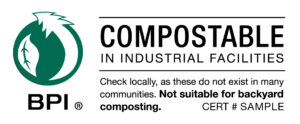 and
and 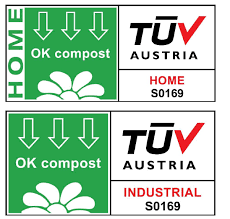 are generally accepted in industrial systems, but aren’t usually accepted in small scale community or backyard compost systems. Best to avoid these plastic products altogether and go for reusable products instead.
are generally accepted in industrial systems, but aren’t usually accepted in small scale community or backyard compost systems. Best to avoid these plastic products altogether and go for reusable products instead. - Composting is a top action that governments can take to create zero-waste cities! Check out GAIA’s Zero-Waste World website to see how cities around the world are using composting to build healthy, sustainable, and equitable communities. (Use the first dropdown menu to select “Zero Waste Cities.”)
Track your contribution
To submit your work and get recognized for your contribution to the movement, complete the form below. If we approve your submission, you’ll be awarded 5 Hours.
Do another Action
Check out our other Actions that build off of this one!
Design a Composting Network
Design a plan for your communities businesses to work together to compost more.

